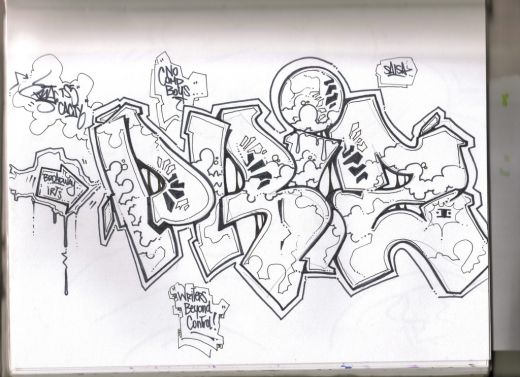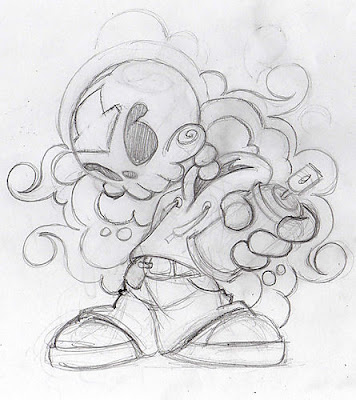Graffiti sketches is where most newcomers begin but really you should start by asking yourself - graffiti - what does it really mean to you? Most people see it as something that emerged only in modern society, scribbled by urban youth on railway bridges. However, its use can be traced back to ancient civilisations, such as the ancient Egyptians whose hieroglyphics could be considered a form of what we know today as graffiti. One can even say that graffiti or writing, as it is more commonly known, dates back to the origins of mankind itself, when Neanderthal man's sense of his environment was expressed through cave drawings.
More often than not graffiti has been characterised as vandalism due to its associations with the spray-painted drawings you often see plastered over buildings and walls in cities.
Graffiti art can be categorised in three common forms: Tags, Pieces and Labels. All of us have walked down a street and seen various walls covered with graffiti, but can we differentiate one item of graffiti from another? The most common and the easiest to recognise is a tag.
A tag is usually a simple one-coloured design (though it can be more complex). Put simply, it is a depiction of a writer or artist's nickname or message, and its aim is to send a message to other writers.



.jpg)
.jpg)
.jpg)
.jpg)
.jpg)

.jpg)

.jpg)









.jpg)
